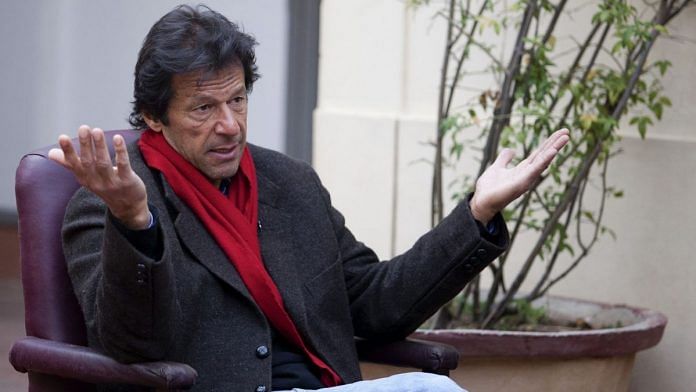16 September, 2019: Amar Ujala refers to Pakistani Prime Minister Imran Khan’s utterances on Kashmir as “Imran ki tilmilahat“. The newspaper says it is not difficult to understand Khan’s irritation and jingoistic utterances since Pakistan survives on the Kashmir issue. The PM has understood that he will not get any support from the US, Europe or Gulf countries so he has started saying things which are an embarrassment even to him. He had also claimed that Pakistan has the support of 58 countries in the UNHCR over the issue of Kashmir, but only 47 members supported it.
Jagran says that it is the habit of some political parties to always oppose Hindi. That is why there was opposition to Amit Shah’s idea of Hindi becoming the national language. However, Hindi is actually already working like a link language in the country. One also needs to understand that Hindi is not opposed to any language, it takes all languages along with it. But it is suffering because people are not taught science, technology and other subjects in Hindi. Narrow politics are being played out in the name of Hindi.
Tuesday, 17, September: Dainik Bhaskar believes that the government is busy making pronouncements which are of little consequence – it would be better if it spends its time fighting corruption, dowry, casteism and communalism. Instead Amit Shah is trying to make Hindi the language of communication for all of India. Haryana and UP which are BJP- ruled states want to have an NRC and find out Bangladeshi “intruders”, an “intelligent labour minister” blames north Indians for unemployment and does not consider it a failure of the government. So, will Prime Minister Narendra Modi run this government with such “able-sepoys”, it asks.
Wednesday, 18 September: Dainik Jagran refers to high oil prices in, “Kachhe tel ka baja“. Oil prices saw a jump after Saudi oil installations were allegedly hit by Iran-backed Houthi rebels. It highlights the importance of West Asia and the impact which a fight between the two nations can have in the whole world. US has accused Iran of the bombings and the bitter relationship between the US and Iran is a cause of concern. It seems that to please Saudi Arabia, the US had revoked its nuclear treaty with Iran. This also led to the crisis in West Asia. For India, this is a bad scenario as it imports over 80 per cent of its oil.
Thursday, 19 September: Amar Ujala looks at the Punjab government’s move of ending the law which made a state exchequer pay income tax of its ministers. Even Uttar Pradesh may do away with this 38-year-old law. The paper says that other states should also think of revoking it. It is not fair that the middle classes pay heavy taxes while ministers don’t even pay their own.
Dainik Jagran laments the apathy that the Indian governments have shown towards sewer deaths. At least the Supreme Court took cognisance of this grave problem, it says. The apex court had said that every month 4-5 people in India die while cleaning sewers. It is shameful that in a civilised society no one cares about the lives of these poor people and don’t even provide them with proper equipment to get inside filthy drains.
Friday, 20 September: Dainik Bhaskar and Amar Ujala focus on the malnutrition report presented by the Indian Council of Medical Research which says that in 2017 over seven lakh children had died from the condition. Amar Ujala says that this is not only worrisome but also shows the helplessness of health services. Prime Minister Modi has kept 2022 as a target to end malnutrition but in the present scenario this seems unachievable.
Dainik Bhaskar says the situation in South India, especially in states like Tamil Nadu and Kerala, is better than North India in terms of development, social awareness and criminal negligence of the ruling classes. The largest number of children below five who die of malnutrition are from Bihar, Rajasthan, Chhattisgarh and Uttar Pradesh, the least from Kerala, Meghalaya, Tamil Nadu, Mizoram and Goa. The worst performers are those states which spend their least per capita on health and education.



